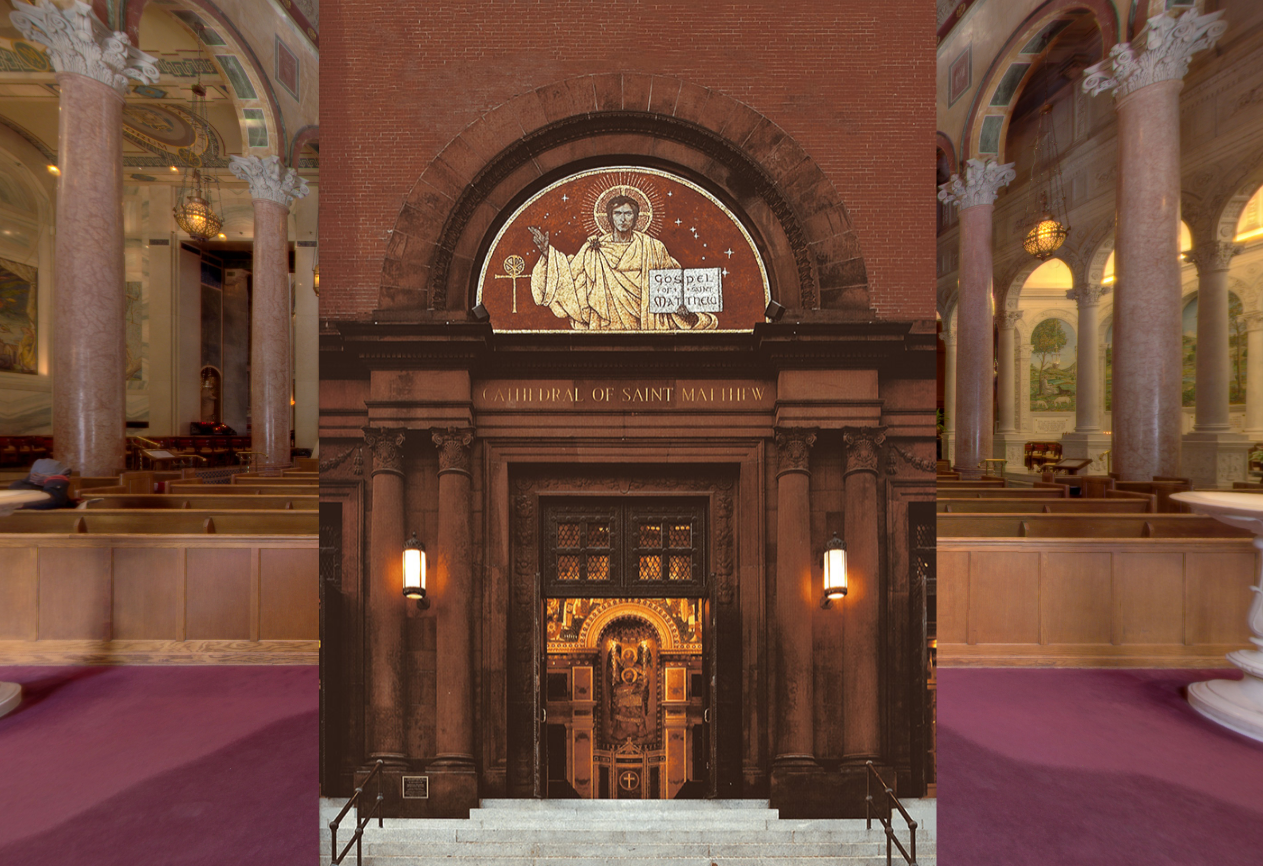The choral music to have been sung by the Schola Cantorum for the Feast of Pentecost this year features three renaissance motets from Italy, the Netherlands and England, and a modern chant-based motet by a contemporary American composer.
Preparation of the Gifts 10am, Dum Complerentur - G. P. da Palestrina (c. 1525-1594)
Palestrina resists setting this motet in the strict imitative polyphony for which he is typically known, and instead uses homophonic phrases that alternate between different groupings of the choir sections. This technique gives the piece a gentle undulating quality, calling to mind the wind blowing into the room at Pentecost. The text is from the book of Acts and recounts the descent of the Holy Spirit with ‘Alleluias’ dispersed throughout the piece - often in more standard imitative polyphony, particularly at the end.
To listen to a version sung by the Schola Cantorum that accompanies the virtual tour of the Cathedral, click below.
 Preparation of the Gifts 11:30am, Veni, Creator Spiritus - Michael John Trotta (b. 1978)
Preparation of the Gifts 11:30am, Veni, Creator Spiritus - Michael John Trotta (b. 1978)
Opening with a single voice on the motive of the Veni Creator chant, the piece then gently adds voices, always continuing in the chant rhythm. Although the melody of the chant is not preserved entirely, trading the motives throughout the vocal parts gives the effect of the chant hymn being sung in its entirety. Trotta spliced together two texts for this motet: Veni Creator, Spiritus, —often attributed to the 9th century monk Rabanus Maurus and which we hear in the beginning—and Veni Sancte Spiritus (not the sequence by the same name), a short prayer found in a Proper from the liturgy. The text sings of the works of the Holy Spirit and implores the Spirit to reside in the hearts of the faithful. Michael John Trotta is a New York-based choral conductor and composer.
To listen to a version, click below.
Communion 10am, Factus est Repente - Thomas Crecquillon (c. 1505-1557)
The text is taken from the Book of Acts and is the Communion Proper for Pentecost Sunday. The Franco-Flemish composer, Crecquillon, sets the text in a solemn polyphonic style, emphasizing the significance of the event, as well as the dramatic occurrence of the Spirit’s descent. The opening line of the motet is written to give the effect of wind entering the room. The piece continues its dramatic drive through imitation and multi-voice entrances to conclude with a triumphant ‘Alleluia’ in a major tonality, perhaps to signify, for Crecquillon and us, the beginning of the Church and a new age.
To listen to a version, click below.
Communion 11:30am, O Lord, Give Thy Holy Spirit - Thomas Tallis (1505-1585)
This motet was written during the reign of Elizabeth I, and is one of the later and most expressive motets from Tallis oeuvre. It is set in a homophonic style with slightly delayed entrances and rhythmic deviation. The work’s mode is continuously at question, as accidentals are negated quickly as they travel through the voice parts. The text for this motet is taken from a 16th century Protestant prayer book called ‘Lidley’s Prayers,’ published following Elizabeth’s ascension to the throne and the reinstatement of the Edward VI prayer book. The prayer asks the Holy Spirit to send forth two of its seven gifts: understanding and fear of the Lord.
To listen to a version, click below.